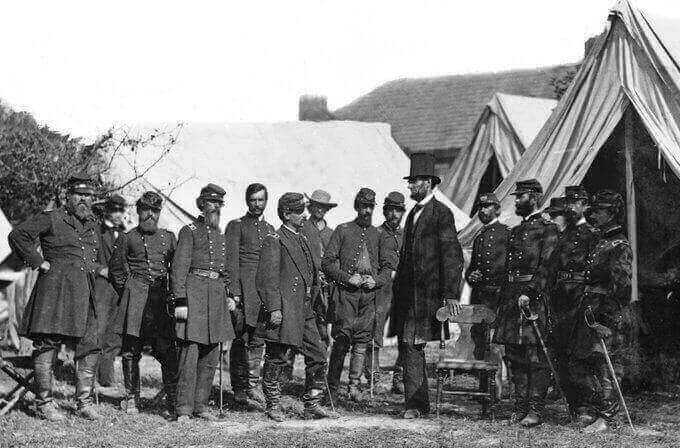There are scores of tomes written on “authentic” leadership, but all too often in practice they come across as farce. People simply don’t trust managers — perhaps the reason why authentic leadership is a cottage industry of its own.
A primary reason for this mistrust is the disconnect between the reality of how work gets done and a lack of understanding on the manager’s part.
The sources of inauthenticity
Consider the last time your manager told you: “I understand” or “I get it”. You probably didn’t believe them. If you did, you might be in a minority.
Managers don't come across as authentic because more often than not they don't have an intimate understanding of the day to day realities of how their teams actually get work done. What's the reason for this disconnect? Is it plain ignorance or is it incompetence?
Two dynamics of modern workplaces foster this dynamic and make it almost impossible to be otherwise:
1. Superficiality
By its very nature, managerial work requires you to be superficial. Henry Mintzberg calls this the “syndrome of superficiality”:
The prime occupational hazard of the manager is superficiality. Because of the open-ended nature of the job and because of the responsibility for information processing and strategy-making, the manager is induced to take on a heavy load of work, and to do much of it superficially.
Hence . . . the job of managing does not develop reflective planners; rather it breeds adaptive information manipulators who prefer a stimulus-response milieu.
— Henry Mintzberg in The Nature of Managerial Work
The fragmented nature of the job almost guarantees a lack of intimate understanding. But this doesn’t have to be a given.
2. Complicatedness
Size and revenue comes coupled with complexity. Organizations in their effort to cope with this increasing complexity inherently become complicated. This means managers are often several layers removed from where the action really is.“Work about work” rather than work itself becomes the primary occupation, especially that of managers.
Managers in the top quintile of the most complicated organizations spend more than 40 percent of their time writing reports and between 30 percent and 60 percent of their total work hours in coordination meetings—work on work. That doesn’t leave much time for them to work with their teams, which, as a result, are often misdirected and therefore expend a lot of effort in vain.
Our analysis shows that in the top quintile of complicated organizations, teams spend between 40 percent and 80 percent of their time wasting their time. It is not that teams are idle. On the contrary, they often work harder and harder but on non-value-adding activities. It means they have to do, undo, and redo, and when their efforts seem to make less and less of a difference, people lose their sense of meaning.
— Yves Morieux and Peter Tollman in Six Simple Rules
Complicatedness means as you rise through the organization, you are that much more detached from “real work”, but more importantly your understanding gets detached as well. You “see” the work through the filters of KPIs, OKRs and a dozen other acronyms.
Peter Drucker likened growing organizations to organisms and called this the “problem of bigness”:
It is a biological law that the larger an organism grows the greater is the ratio between its mass and its surface, the less exposure to the outside there is for the cells on the inside. As living organisms grow they have therefore to develop special organs of breathing, perspiration and excretion.
It is this law that sets a limit to the size of living organisms, that makes sure that the trees will not grow into the sky; and the business enterprise stands under this law as much as any other organism.
Another typical offshoot of this bigness is organizational silos where managers are often familiar with the issues of their own silos, but not necessarily how they affect other silos and vice versa. It’s why the lack of authenticity also happens between managers of functional units as well.
Neither of the scenarios necessarily account for the more recent phenomenon of remote work which adds an additional layer of complexity.
Authenticity - an alternate definition
None of these “syndromes” can necessarily be avoided, at least at the individual level. What can in fact be changed is whether managers are aware of this dynamic and how they engage with this reality.
So what are managers to do? One option is to embrace an alternate definition of authenticity:
The more a manager or exec is intimate with the workings of their team — how work actually gets done — the more likely they will come across as genuinely authentic, both to their teams and peers.
By extension, this also means being more effective, not just managers but entire teams. Yves Morieux and Peter Tollman in Six Simple Rules call this reconnecting with “the materiality of work”:
To have an authentic management presence, you have to regain direct knowledge of operations and escape the abstractions and symbols that are meant to represent work—structures, procedures, KPIs, and the rest—but that push management to the periphery of work.
Do not accept this fate. You do not have to live in a world of abstractions. You need not spend your time wracking your brain about how best to reshuffle the boxes or draw the lines in the org chart. You can deal with the real content of the work, rather than just its container…
The more organizations harness the power of digital technologies, disperse globally, and operate in virtual teams, the more we need to shed light on what has become increasingly obscured: the actual work real people do. Connecting to the materiality of work is both challenging and essential.
Understanding the context within which work happens is a way to see the reality, which is precisely what is filtered out or obscured by visions of the supposed pros and cons of structures, processes, and systems (the hard approach) as well as stories about personalities and sentiments that turn against people (the soft approach).
Authentic leadership doesn't have to be some pie in the sky notion that's disconnected from reality on the ground. It can be as simple as getting dirty and grubby in the metaphorical trenches alongside your teams. But simple doesn't mean easy and perhaps why it continues to be a rarity.
Related reading
An effective antidote against disconnection and ivory tower notions is what HP in its heyday used to call "managing by wandering around" or MBWA. The military calls it battlefield circulation:

For some additional perspectives check out Rian van der Merwe's post below:

Sources
- Managing by Henry Mintzberg
- Six Simple Rules by Yves Morieux and Peter Tollman
- https://www.bcg.com/publications/2018/bringing-managers-back-to-work
- The Practice of Management by Peter F. Drucker



